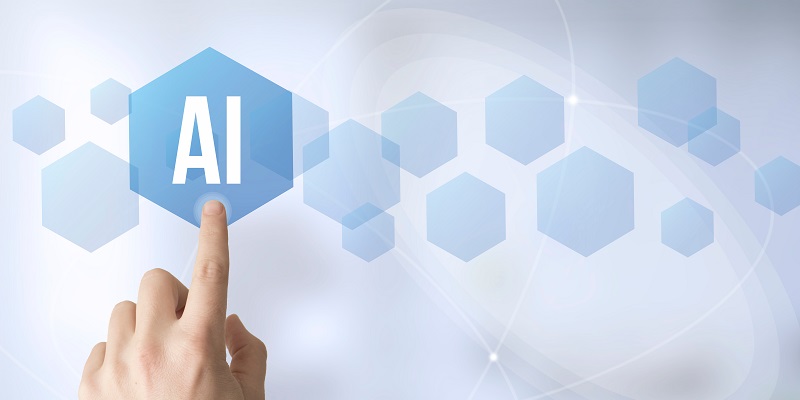In today’s rapidly evolving technological landscape, generative AI is emerging as a game-changer in various industries, including human resources (HR). With its ability to process natural language and generate relevant responses, generative AI brings several benefits to HR tasks. This article explores how generative AI can revolutionize HR operations, from speeding up job description generation to improving operational efficiency. Let’s delve into each area and explore the potential of generative AI in HR.
Speeding up job description generation
As HR professionals know, creating accurate and compelling job descriptions is crucial for attracting qualified candidates. However, this process can be time-consuming and labor-intensive. Through generative AI, HR teams can now quickly generate detailed job descriptions within minutes. By utilizing algorithms that analyze vast amounts of data, generative AI can provide precise and comprehensive job descriptions that encompass key responsibilities, qualifications, and desired skills. This acceleration not only saves valuable time but also ensures that the recruitment process starts promptly.
Pre-screening candidates with generative AI
One of the initial challenges in the hiring process is evaluating numerous applications and identifying the most promising candidates. Generative AI plays a significant role here by automating candidate pre-screening. HR teams can design a series of questions tailored to specific job requirements, and generative AI algorithms can assess and evaluate candidate responses accordingly. This technology enables efficient and consistent screening, ensuring that only candidates who meet the desired criteria proceed to the next stage. The use of generative AI in pre-screening enhances the overall efficiency of the hiring process.
AI-powered chatbots for candidate interactions
Candidates often have questions and seek more information during the recruitment process. Creating a positive candidate experience is essential, and generative AI can contribute significantly in this aspect. By developing AI-powered chatbots, HR teams can provide a responsive and interactive platform for candidates to seek information and clarify doubts. These chatbots, powered by generative AI, can simulate human-like conversations and provide accurate, consistent, and instant responses, making the recruitment process more engaging and efficient.
Seamless onboarding with generative AI
Smooth onboarding sets a positive tone for new hires and accelerates their assimilation into the company culture. Generative AI can help HR teams make onboarding a seamless experience. By utilizing algorithms that process natural language, AI-powered systems can generate personalized onboarding plans for each new hire based on their job roles, qualifications, and learning history. These tailored plans provide employees with the necessary resources, training materials, and information to adapt quickly to their roles and responsibilities, ultimately improving their overall productivity.
Personalized learning paths with generative AI
Employee development and continuous learning are essential for enhancing skills and performance. Generative AI can play a pivotal role in creating personalized learning paths and curricula for each employee. By analyzing individual job roles, qualifications, and learning history, AI algorithms can generate customized learning plans that address specific skill gaps and career development goals. These personalized learning paths ensure that employees receive the right training and development opportunities, leading to enhanced job satisfaction and retention.
Dynamic course difficulty adjustment using generative AI
To maximize the effectiveness of learning programs, generative AI can dynamically adjust the difficulty levels of courses based on individual progress and performance. This adaptive learning approach ensures that employees are challenged at the appropriate level, promoting engagement and skill development. Generative AI algorithms continuously analyze employee performance data, adapting and fine-tuning course content and difficulty levels to optimize learning outcomes. As a result, employees can efficiently advance their skills, while HR teams can provide targeted and impactful training initiatives.
Evaluating employee performance with generative AI
Evaluating employee performance is a critical aspect of HR management. Generative AI can significantly assist HR managers in this process by leveraging natural language processing capabilities to analyze employee performance data and generate comprehensive evaluations. Using predefined criteria, generative AI algorithms can summarize customer and manager feedback for employees and provide in-depth analysis of their performance metrics. Through this technology, HR managers gain a holistic and data-driven understanding of employee performance, facilitating informed decision-making regarding promotions, training needs, and recognition.
Automated feedback analysis with generative AI
Gathering and analyzing feedback is crucial for assessing employee performance and identifying areas for improvement. Generative AI simplifies this process by automating feedback analysis. Natural language processing algorithms enable AI systems to accurately summarize customer and manager feedback, categorize sentiments, and extract key insights. This automated feedback analysis saves significant amounts of time and effort for HR teams, allowing them to focus on implementing effective strategies and interventions to foster employee growth and development.
Cost reduction and operational efficiency with generative AI
Generative AI eliminates a significant portion of the manual work traditionally performed in talent management. By automating repetitive and time-consuming tasks, such as job description generation, candidate pre-screening, and feedback analysis, HR teams can streamline processes and reallocate resources to more strategic initiatives. The automation provided by generative AI translates into reduced operating costs for companies, enhancing overall cost-effectiveness and freeing HR personnel to concentrate on higher-value activities.
Improved operational efficiency through generative AI
By leveraging generative AI, HR departments can minimize the room for human errors that often occur in time-consuming HR operations. The accuracy and consistency offered by AI systems enhance the efficiency and effectiveness of various HR tasks, such as candidate screening, employee evaluations, and onboarding processes. With generative AI as a reliable ally, HR teams can achieve greater operational efficiency, delivering faster results with greater precision and reducing potential bottlenecks in HR workflows.
The potential of generative AI in revolutionizing HR operations is immense. From speeding up job description generation to automating candidate pre-screening, creating AI-powered chatbots, and personalizing learning paths, these advancements enable HR teams to optimize recruitment, improve employee onboarding, foster growth, and enhance operational efficiency. As generative AI continues to evolve, HR professionals can exploit its capabilities to elevate their effectiveness and contribute to broader strategic goals within their organizations. The future of HR lies in embracing this transformative technology and harnessing its potential to reshape the workforce experience.

